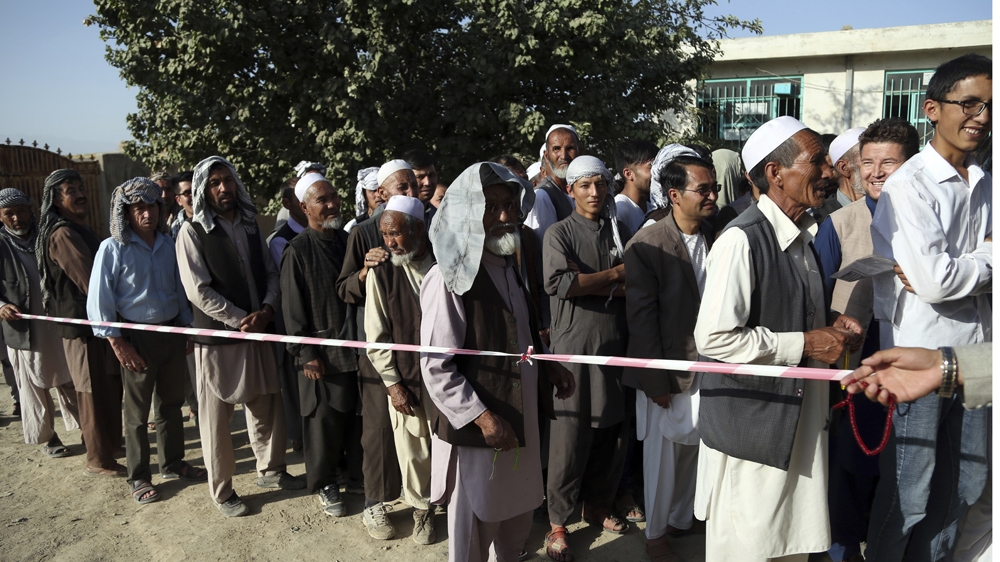President Ashraf Ghani announced winner of Afghan elections; UN mission welcomes result
The sixth presidential election was held in September of this year and final results were to be announced on 16 October, but the calendar had been postponed by the Independent Election Commission

KABUL : The Independent Election Commission (IEC) today, Sunday, December 22, announced the preliminary results of the presidential election. Ashraf Ghani came in second with 923,868 votes (50.64%) and Abdullah Abdullah with 720,990 (39.52%).
The sixth presidential election was held in September of this year and final results were to be announced on 16 October, but the calendar was postponed by the IEC.
The IEC recounted that audits had been conducted in more than 8,000 polling stations.
The elections had been bitterly contested and the commission has faced opposition from a number of electoral teams, including Abdullah Abdullah’s “Stability and Convergence” team.
Despite opposition, the IEC completed the recount and audit process in 27 provinces. In the other seven provinces, this process failed due to opposition from a number of election teams. Finally, a month later, Abdullah asked his supporters allowed the commission to recount the votes of the remaining seven provinces.
The UN Assistance Mission in Afghanistan (UNAMA) has welcomed the announcement of the preliminary results for Afghanistan’s presidential election and commended the country’s electoral bodies – the Independent Election Commission (IEC) and the Electoral Complaints Commission (ECC) – for their work leading up to the announcement.
“On 28 September 2019, the citizens of Afghanistan braved security threats to cast their votes for a better future; those voters deserve to be commended for carrying out their civic duty,” said Tadamichi Yamamoto, the UN Secretary-General’s Special Representative for Afghanistan. “Now, all Afghan authorities and actors must demonstrate their commitment to safeguard and complete the election, and to protect the integrity of the final stage of the process.”
Yamamoto, who is also head of UNAMA, added: “Any decisions taken by the electoral management bodies in the final stage of the process must have clear legal and technical justifications and should be explained to the people of Afghanistan in clear terms.”
The United Nations underscores the importance of an orderly process, conducted with particular care and sensitivity, leading up to the announcement of the final results, and reiterates that the election process is a joint responsibility of all stakeholders, including the electoral management bodies and the candidates, as well as media and civil society.
All candidates have the chance to raise any concerns they may have through the appropriate mechanism and within the prescribed time, in accordance with the relevant legal frameworks, regulations and procedures,” said Yamamoto. “At the same time, the ECC has an obligation to adjudicate any complaints it receives transparently and thoroughly so the election process may conclude in a credible manner.”
As part of the mandate conferred on it by the Security Council, UNAMA provides support to Afghanistan’s electoral authorities and their work. In keeping with its mandate to advise the electoral authorities, UNAMA maintains strict impartiality in its respect for Afghanistan’s election law and all efforts to fight fraud. UNAMA will continue its work to support the electoral authorities, providing impartial and expert advice directed toward supporting a transparent and credible election process based on rule of law.
UNAMA supports the Afghan people and government to achieve peace and stability. In accordance with its mandate as a political mission, UNAMA backs conflict prevention and resolution, promoting inclusion and social cohesion, as well as strengthening regional cooperation. The Mission supports effective governance, promoting national ownership and accountable institutions that are built on respect for human rights. UNAMA provides ‘good offices’ and other key services, including diplomatic steps that draw on the organization’s independence, impartiality and integrity to prevent disputes from arising, escalating or spreading. The Mission coordinates international support for Afghan development and humanitarian priorities.